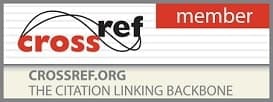- Printed Journal
- Indexed Journal
- Refereed Journal
- Peer Reviewed Journal
P-ISSN: 2394-1685 | E-ISSN: 2394-1693 | CODEN: IJPEJB
Impact Factor (RJIF): 5.38
2020, Vol. 7, Issue 6, Part D
Quantifying and explaining trainer variation in fitness assessments using multilevel modeling
Author(s): Peter D Hart
Abstract:
Background: A characteristic of a good fitness test is its ability to create variation between participants. However, variation in fitness scores between different trainers is not often considered.
Purpose: The purpose of this study was to use multilevel linear models to quantify and explain variation in fitness scores.
Methods: Data for this research came from N=131 college students attending a rural public university. Five (5) different fitness assessments were administered to each participant and included measures of percent body fat (PBF, %), muscular endurance (ME, reps), muscular strength (MS, kg), flexibility (FL, cm), and cardiorespiratory fitness (CRF, ml/kg/min). Various random intercept and random slope multilevel models were evaluated to quantify and explain variance in participants (level 1) nested within trainers (level 2). Participant physical activity rating (PAR) and trainers’ percentage of athlete clients (Athletes) were used as level 1 and level 2 predictors, respectively, while controlling for age and sex.
Results: Results from the unconditional means (variance components) models indicated significant trainer (intercept) variation in the CRF model only (ICC = .35, p = .020). A CRF outcome model with random intercept and fixed slopes was the most parsimonious model found (b PAR = 1.45, b Athletes = 10.33, b Age = -0.21, b Sex = 2.54, p = .001, R2 Pseudo = .57). The final model explained 32% and 68% of level 1 and level 2 variance, respectively.
Conclusion: Results from this study showed that trainer variation in fitness assessment scores is only considerable in CRF testing. Furthermore, athlete status of the trainers’ participants explains a substantial amount of trainer variation in CRF.
Pages: 246-249 | 603 Views 146 Downloads
Download Full Article: Click Here

How to cite this article:
Peter D Hart. Quantifying and explaining trainer variation in fitness assessments using multilevel modeling. Int J Phys Educ Sports Health 2020;7(6):246-249.








 Research Journals
Research Journals